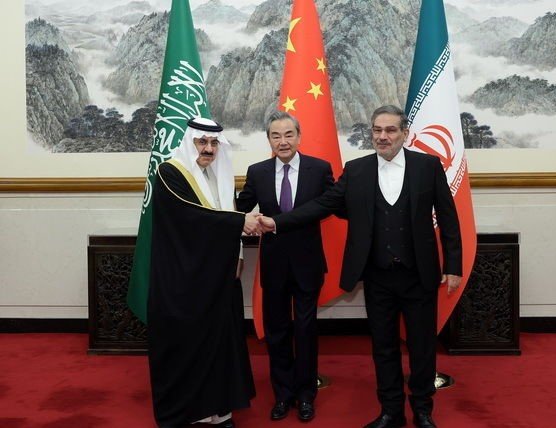Egyptian President Abdel Fattah Al-Sisi and Saudi Crown Prince Mohammed bin Salman met in NEOM last week to forge a stronger alliance amid rising tensions in the Israel-Palestine conflict. This emerging Cairo-Riyadh axis aims to counter Israeli actions in Gaza and push for Palestinian rights, marking a key shift in Middle East politics as of August 2025.
Summit Sparks New Alliance
The NEOM summit brought together two major Arab powers at a critical time. Leaders discussed shared concerns over Israel’s recent moves, including plans that some view as threats to Palestinian land.
Egypt and Saudi Arabia have long held influence in the region. Their meeting focused on joint strategies to address the ongoing Gaza crisis. Reports indicate they explored military and diplomatic options to support Palestine.
This alliance comes after months of conflict updates. In July 2025, ceasefire talks showed some progress, with Hamas responding positively to proposals. Yet, Israeli strikes continued, killing many in Gaza.
The summit also touched on economic ties. Saudi Arabia’s Vision 2030 and Egypt’s development plans could benefit from closer cooperation.

Military Power and Deterrence
Egypt and Saudi Arabia together boast strong military forces. Their combined troops number around 700,000, far outpacing Israel’s 169,500 active personnel.
This strength serves as a deterrent. Egypt controls the Suez Canal, while Saudi Arabia oversees the Bab el-Mandeb Strait. These positions give them leverage over key trade routes.
Joint exercises have increased. Red Sea security drills show growing coordination between the two nations.
Recent events highlight tensions. Egypt warned Israel against actions along the Philadelphi corridor, calling it a potential violation of peace accords.
Saudi Arabia has invested in advanced weapons. Their F-15 fighters and missile systems add to the alliance’s capabilities.
- Egypt’s army has experience in Sinai operations.
- Saudi forces focus on modern tech and air power.
- Both nations share intelligence on regional threats.
Diplomatic Push for Peace
The axis seeks to revive two-state solution talks. In July 2025, Saudi Arabia and France hosted a conference in New York to promote Palestinian statehood.
Arab leaders, including those from Qatar and Egypt, signed a declaration urging Hamas to disarm and hand over Gaza control. This move aims to end the war and build lasting peace.
Public sentiment plays a role. Protests in Israel called for ceasefires, while Gaza faced heavy attacks.
The alliance pressures Israel to reconsider its stance. Netanyahu’s government has faced criticism for expansion plans.
| Key Diplomatic Events in 2025 | Date | Outcome |
|---|---|---|
| NEOM Summit | August | Strengthened Cairo-Riyadh ties |
| New York Conference | July | Call for Hamas to disarm |
| Riyadh Meeting | February | Discussed Gaza plan |
This table shows major steps toward resolution.
International support grows. The UN and EU back efforts for a two-state solution.
Impact on Palestine Conflict
The Cairo-Riyadh axis could change the conflict’s dynamics. With Gaza’s buildings heavily damaged, aid remains crucial.
Reports from July 2025 note over 100 deaths in single days from Israeli strikes. Ceasefire proposals continue, but implementation lags.
Palestinians see hope in this alliance. It counters Israel’s security doctrine and promotes Arab unity.
Economic factors matter too. Saudi investments in the region could fund reconstruction.
Challenges persist. Internal Arab differences, like Qatar’s positions, complicate unity.
Future Outlook and Challenges
Looking ahead, the axis may expand to include other nations. Jordan and the UAE have shown interest in similar talks.
Experts predict more joint initiatives. These could include economic sanctions or stronger UN lobbying.
However, Israel’s responses remain uncertain. Recent statements suggest continued operations in Gaza.
The alliance must navigate U.S. influence. American policies often shape Middle East outcomes.
Share your thoughts on this developing alliance in the comments below, and spread the word by sharing this article with others interested in Middle East peace efforts.
